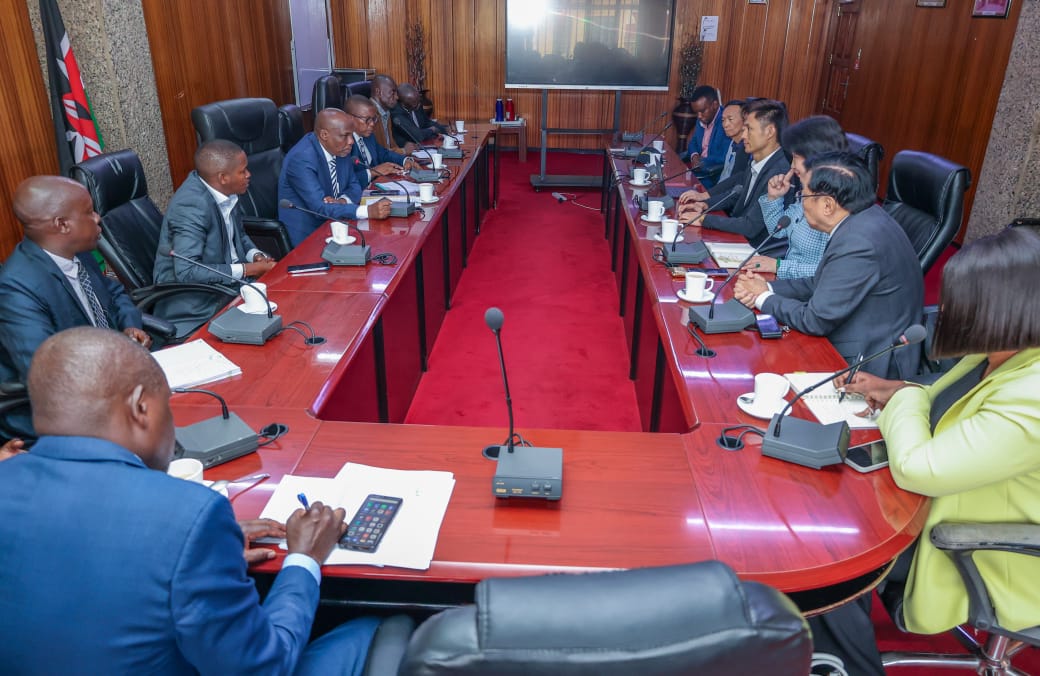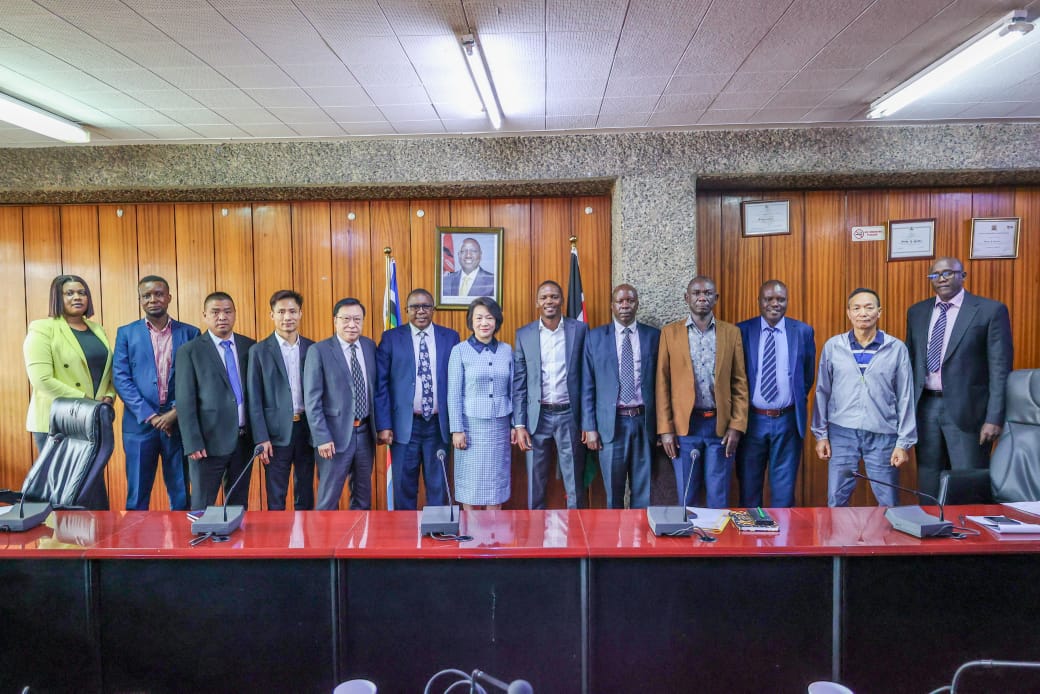
 A delegation from Kenya and Chinese investors at a meeting with Agriculture Principal Secretary Dr. Kipronoh Ronoh at Kilimo House. [PHOTO: HANDOUT]
A delegation from Kenya and Chinese investors at a meeting with Agriculture Principal Secretary Dr. Kipronoh Ronoh at Kilimo House. [PHOTO: HANDOUT]
Chinese investors have unveiled a
multi-billion shilling plan to transform Kenya’s agriculture sector through a
series of innovations targeting soil health, sustainable food systems, and
agro-industrial processing.
The delegation, led by investor Meng
Mi and introduced by Trans Nzoia Senator Allan Chesang, held a high-level
meeting with Agriculture Principal Secretary Dr. Kipronoh Ronoh at Kilimo
House, where they presented a wide-ranging portfolio of proposed investments.
Among the key proposals is the
rollout of bio-fertiliser technology, seen as a cleaner alternative to chemical-based fertilisers.
“Bio-green fertiliser is great, as we are moving away from chemical fertiliser. We are ready to offer land for this to
take place,” said PS Ronoh.
The team also showcased advanced
potato processing technology that can convert potatoes into rice or noodles
with a shelf life of up to 10 years.
This is expected to enhance food
security and open new export markets.
Also on the table is the
introduction of a drought-resistant rice variety that requires minimal water,
an innovation that could boost crop yields in Kenya’s dry regions amid changing
climate patterns.

The investors proposed large-scale
cultivation of Juncao Grass across 100,000 hectares in the Rift Valley.
The high-protein fodder is ideal for
livestock and textile fiber production and is expected to create over 500,000
jobs.
“This will solve the feed problem
for stock farming and support food security,” Meng said.
Another highlight was a water-from-air
technology designed to support drip irrigation while also supplying clean
drinking water. This dual-use system targets arid and semi-arid areas where
access to water is a major barrier to food production.
To support Kenya’s plastic ban, the
investors plan to plant 130,000 hectares of dragon bamboo, a fast-growing
species suited to the local climate. Bamboo products—such as food containers,
eco-charcoal, and construction materials—are in high demand globally,
especially in Europe’s anti-plastic markets.
Senator Chesang said the proposed
partnership is aligned with national priorities. “These projects will modernize
agriculture, create jobs, support agro-industrial growth, and boost exports.
This is key to growing our GDP.”
The Ministry of Agriculture has
pledged to facilitate land access and accelerate necessary approvals for pilot
programs. Technical teams from both sides are expected to continue engagements
in the coming weeks to refine implementation plans.












